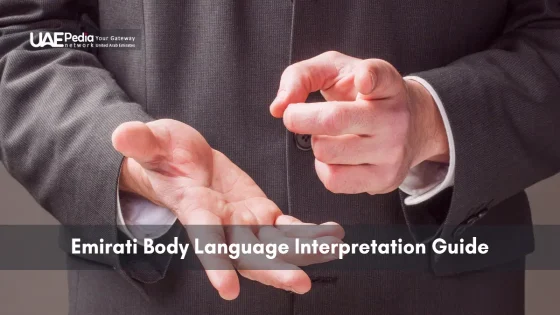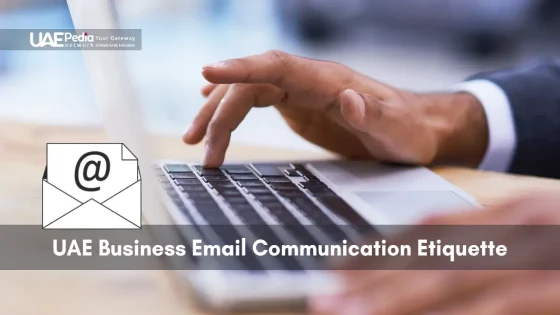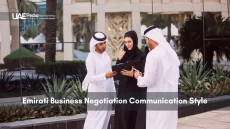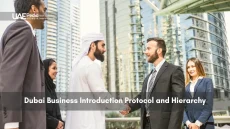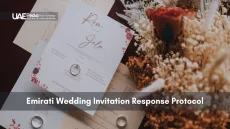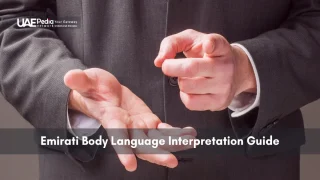Did you know a 3 PM meeting in Dubai might unfold closer to 3:30—and no one bats an eye? Time here bends like desert winds, blending age-old hospitality with today’s fast-paced global hubs. For professionals new to the Emirates, grasping this rhythm isn’t just practical—it’s a gateway to trust.
Unlike rigid Western calendars, appointments here often prioritize relationship-building over strict agendas. A handshake might follow stories of family or shared tea, not bullet points. Flexibility reigns: delays aren’t rudeness but reflections of a culture valuing personal connections first.
This approach stems from deep-rooted traditions. Modern skyscrapers may dominate the skyline, but the heart of local etiquette remains tied to majlis gatherings—spaces where patience and conversation pave the way for collaboration. Rushing through formalities? That’s a missed chance to align values.
The UAE business environment is shaped by Islamic values, hierarchical structures, and a relationship-first approach. Expect fluid punctuality—meetings may start late or run long to accommodate courtesy, prayer times, or small talk that builds trust. Decision-making is top-down; greet the most senior person first, use titles, and exchange business cards with the right hand only. Dress conservatively (shoulders and knees covered) and avoid left-hand gestures. The workweek runs Sunday–Thursday; during Ramadan hours shorten and social obligations increase.
Plan engagements with built-in buffers, avoid booking consecutive appointments, and schedule around the five daily prayer windows and key Islamic holidays (Eid al-Fitr, Eid al-Adha). Face-to-face interaction is essential—virtual follow-ups should reinforce earlier personal contact. Integrate CSR and sustainability themes into proposals to align with national Vision 2030 priorities and local ethical expectations.
Key Takeaways:
- Timelines bend; trust builds through patience.
- Personal rapport often precedes formal agendas.
- Respect hierarchy; titles shape first impressions.
- Prayer breaks and holy days affect schedules.
- Modest, polished attire signals cultural fluency.
- Deep conversations outweigh rushed efficiency.
Understanding the UAE Business Landscape
Imagine stepping into a boardroom where ancient Bedouin hospitality meets cutting-edge innovation—welcome to the Emirates’ corporate world. Here, skyscrapers tower over sand dunes, and majlis seating arrangements coexist with AI-driven startups. Time operates on a spectrum: a 10 AM discussion might drift toward noon, not from neglect, but to honor the art of connection.
Global professionals often notice meetings here stretch like warm taffy—agendas bending to accommodate story exchanges or shared dates. Punctuality matters, but rigid timelines? Less so. A CEO in Abu Dhabi once joked, “We measure minutes in relationships, not seconds.” This fluidity stems from traditions where trust is built through lingering conversations, not rushed emails.
Key cities like Abu Dhabi and Dubai act as cultural crossroads—hubs where handshakes seal deals after third coffees. Informal chats about family or local festivals often pave the way for billion-dollar partnerships. One tech founder shared, “Our pitch succeeded because we asked about his daughter’s graduation first.”
To thrive here:
- View delays as relationship-building opportunities, not setbacks
- Blend professionalism with personal curiosity during interactions
- Study regional customs before discussing contracts
Embracing Cultural Intelligence in UAE Meetings
Cultural intelligence isn’t just a buzzword here—it’s your golden ticket. In the Arab Emirates, every interaction weaves tradition with modern professionalism. Let’s decode two pillars that shape successful exchanges.
Hierarchy: The Unspoken Script
Walk into any meeting here, and you’ll quickly spot the senior figure—often seated centrally. Wait for them to extend their right hand first during greetings. Titles matter deeply: address leaders as Sheikh or Sheikha unless invited otherwise. One logistics manager shared, “Calling my Emirati partner by his first name too soon froze the deal for weeks.”
Etiquette: More Than Manners
Handshakes linger longer here, often accompanied by inquiries about family. Business cards? Present them with both hands, Arabic side up. Dress code whispers respect: opt for modest tones even in Dubai’s heat. A tech founder learned this when rolled-up sleeves during a pitch made investors glance away.
Three quick tips for smooth communication:
- Pause after senior members speak—interruptions strain relationships
- Note prayer-time pauses; they’re natural, not rude
- Save detailed contracts for after third coffee rounds
In the Arab Emirates, respect isn’t earned through agendas—it’s baked into every gesture. Master these nuances, and doors open wider than a desert sky.
Read More:
Implementing the UAE Business Appointment Scheduling Protocol
Ever tried squeezing three meetings into a Dubai workday? Local pros would advise against it—here’s why. Hospitality rhythms here favor depth over speed, making two well-spaced engagements the golden rule. Picture this: a morning coffee chat at a Palm Jumeirah hotel terrace, followed by an afternoon discussion that flows into sunset. This cadence honors the region’s preference for meaningful exchanges.
Top-tier venues play a strategic role. Opt for spaces near landmarks like the Palm—their ambiance and amenities reduce distractions. A hospitality manager shared, “Guests appreciate when we handle logistics so they can focus on building rapport.” Flexible start times? Build them into your plan. Instead of “10 AM sharp,” frame slots as “mid-morning” or “late afternoon” to accommodate organic transitions.
Three steps to align your approach:
- Map meetings around prayer breaks and peak traffic hours
- Allow 30-minute buffers between engagements for unplanned conversations
- Choose locations that blend professionalism with local charm
Success here isn’t about cramming agendas—it’s crafting a process that mirrors the region’s warmth. By prioritizing connection over strict timelines, you’ll navigate the development of partnerships with cultural fluency.
Adapting to Variable Punctuality and Scheduling Nuances
Ever notice how a Dubai lunch meeting might stretch into afternoon tea? Time here flows like honey—thick, golden, and deliciously unhurried. While Westerners often race against clocks, professionals here dance to a rhythm where connections trump calendars.
Planning Around Delays
Local punctuality leans fluid. A 2 PM start might drift to 2:20 as attendees finish prior conversations. One logistics manager laughed, “Our calendars have soft edges—like sand dunes reshaping with the wind.” Build buffers: slot 30 extra minutes between engagements. This lets discussions breathe without derailing your day.
Meetings here often overlap like woven palm fronds. A coffee chat could morph into introducing colleagues mid-conversation. Stay flexible—view interruptions as networking opportunities, not distractions. Pro tip: Track prayer times and traffic peaks to avoid scheduling crunch hours.
Three ways to thrive in this flow:
- Pack light agendas—depth beats speed
- Use waiting moments to bond over shared interests
- Celebrate progress, not just deadlines
Patience isn’t passive here—it’s strategic. As a tech founder advised, “Watch the sunset together first. Spreadsheets can wait.” Master this approach, and you’ll sync with the region’s heartbeat.
Adjusting Business Meeting Etiquette in the United Arab Emirates
Ever watched a New York minute dissolve into a Dubai hour? Western professionals often stumble when navigating meetings here—not from lack of preparation, but from misreading cultural currents. The Emirates’ blend of formality and warmth creates a unique dance between protocol and personal connection.
Unlike Western settings where agendas rule, discussions here breathe. A London executive once confessed, “I panicked when my 30-minute slot became two hours of stories and cardamom coffee.” Locals prioritize understanding partners’ values before deals. Eye contact softens, interruptions fade, and silence holds weight—a stark contrast to rapid-fire brainstorming sessions common elsewhere.
Three shifts to smooth your transition:
- Greet senior members first with a firm handshake (right hand only)
- Swap rushed presentations for layered conversations that build trust
- Notice posture shifts—leaning back might signal contemplation, not disinterest
Dress codes whisper volumes. Opt for tailored neutrals in formal settings, even when temperatures soar. A venture capitalist shared, “My rolled sleeves during a pitch made investors question my seriousness.” Adapting your wardrobe shows respect for local sensibilities without sacrificing personal style.
True success lies beyond etiquette checklists. As one CEO advised, “Master the market entry strategy, but leave room for shared laughter.” Balance structured professionalism with organic relationship-building—that’s where partnerships flourish in this sun-drenched crossroads of tradition and tomorrow.
Navigating Business Attire and First Impressions
Ever felt overdressed at a beachside meeting in Dubai? What you wear here speaks volumes before you utter a word. In the Arab Emirates, clothing isn’t just fabric—it’s a silent handshake blending respect with cultural fluency.
Dressing Sharp with Local Sensitivity
Traditional Emirati attire flows with purpose: crisp kanduras for men and elegant abayas for women reflect both heritage and status. Expats needn’t mimic these styles but should mirror their modesty. Opt for tailored suits in desert-friendly fabrics like linen—think charcoal over black for daytime events. A venture capitalist shared, “My navy blazer and cream slacks got more nods than my competitor’s three-piece suit.”
Women’s business attire balances professionalism with local norms. Knee-length dresses with sleeves or structured pantsuits work well. Avoid sheer materials or tight fits—one designer noted, “A client once rescheduled when a partner’s neckline distracted the room.” Accessories matter too: skip flashy jewelry for minimalist pieces that whisper sophistication.
Grooming completes the picture. Men’s beards should be neatly trimmed, while women often pull hair back for a polished look. Even cufflinks or handbags make subtle statements. At a recent tech summit, an entrepreneur’s scuffed shoes nearly overshadowed his pitch—proof that details get noticed.
For formal evening events, explore our UAE holiday attire guide. Remember: your outfit isn’t just clothing—it’s the first chapter of your professional story here. Nail the dress code, and you’ve already written a compelling introduction.
Mastering Effective Communication in Emirati Culture
Ever wondered why your first three words in Dubai matter more than your thirty-minute pitch? Here, conversations begin long before agendas—they start with how you greet, when you sip coffee, and which hand holds your credentials. Let’s unpack the unspoken rules that turn exchanges into alliances.
Formal Greetings and Appropriate Titles
“As-salaam alaikum” isn’t just hello—it’s a cultural handshake. Use this Arabic phrase first, paired with eye contact and a smile. Titles like Sheikh or Sheikha signal respect for hierarchy. A logistics director shared, “Addressing my counterpart properly took our partnership from stalled to signed in weeks.”
| Gesture | Cultural Significance | Best Practice |
|---|---|---|
| Right-hand card exchange | Symbolizes trust and attentiveness | Present with Arabic text facing recipient |
| Light handshake | Balances professionalism and warmth | Avoid prolonged grips; match local pressure |
The Art of Small Talk in Relationship Building
Arabic coffee isn’t caffeine—it’s currency. Accept the petite cup with your right hand, sip slowly, and let conversations meander. A hospitality manager noted, “Guests who skip our coffee ritual rarely secure return meetings.”
Three conversation sparks that work:
- Family well-being (start general, avoid personal details)
- Local heritage sites (ask for recommendations)
- Regional achievements (tech milestones, sustainability efforts)
Cultural awareness turns global professionals into trusted collaborators. As one founder put it, “We closed deals faster once we stopped racing to spreadsheets and savored the stories first.” In this crossroads of tradition and innovation, every word—and pause—builds bridges.
Building Trust and Lasting Business Relationships
What if trust here isn’t earned but brewed—slow-steeped over countless cardamom coffees? Real partnerships in this region unfold like intricate henna patterns: deliberate, layered, and rich with meaning. A Dubai-based tech founder shared, “Our investor signed after seven lunches—not one pitch deck.”
Time becomes your ally. One logistics executive described her breakthrough deal: “Three meetings discussed family histories before mentioning contracts.” These interactions aren’t detours—they’re the foundation. Shared values like hospitality and loyalty often outweigh quick wins.
Nurturing connections demands consistency. Weekly check-ins via WhatsApp, Ramadan greetings, or celebrating local milestones keep bonds alive. A venture capitalist noted, “My Emirati partner remembered my birthday before my own assistant.”
Three keys to lasting ties:
- Prioritize face time over email chains—even virtual coffees count
- Align your team’s conduct with regional customs (think gift-giving etiquette)
- Celebrate collaborative wins publicly to reinforce mutual commitment
True collaboration here resembles a desert sunset—vivid colors deepening with patience. As one CEO wisely said, “Plant palms together. The dates taste sweeter.”
Strategies for Successful Negotiations and Business Deals in UAE
What if the key to sealing a deal here isn’t in your pitch but in the pauses between words? Local professionals often describe negotiations as sand art—delicate layers built through attentive silence and cultural attunement. One tech executive shared, “Our biggest contract emerged from three meetings where we barely discussed numbers.”
Emphasizing Patience and Active Listening
Rushing through agendas here risks sounding like desert wind—harsh and directionless. Instead, mirror the rhythm of traditional majlis dialogues where speakers pause thoughtfully. A logistics manager advised, “Count to five after their last sentence. That’s when real insights surface.”
| Western Approach | Emirati Style | Key Difference |
|---|---|---|
| Direct proposals | Circular storytelling | Builds context before terms |
| Time-bound deadlines | Flexible timelines | Prioritizes relationship depth |
| Verbal agreements | Consensus through nods | Non-verbal cues carry weight |
Using Subtle Cues and Consensus Building
Notice how Emirati partners rarely say “no” outright? Declinations often come through phrases like “We’ll consider it” or diverted eye contact. This mirrors Sheikh Zayed’s legacy of diplomatic nuance—where respect trumps confrontation.
Three adaptation tips for smoother outcomes:
- Watch for eyebrow raises or coffee cup placements as negotiation signals
- Frame compromises as collective wins (“Our shared solution…”)
- Let local partners voice terms first to honor hierarchy
Master this blend of patience and perception, and you’ll find deals unfolding like sunrise over Al Ain—gradual, radiant, and worth the wait.
Adapting to Local Time, Prayer Schedules, and Holy Days
Ever watched a sunset meeting stretch into starlight hours? Time here bends to spiritual rhythms—five daily pauses for prayer and lunar cycles shaping calendars. For professionals, syncing with these patterns isn’t just polite—it’s pivotal for collaboration.
Harmonizing Schedules with Spiritual Cadence
Prayer times shift daily, guided by the sun’s arc. Meetings often pause when the adhan echoes—phones silenced, conference rooms emptied. A logistics director shared, “Our team schedules Zoom calls around Fajr and Maghrib—it shows we value their priorities.”
| Period | Schedule Features | Best Meeting Times |
|---|---|---|
| Regular Days | Work hours split by 15-30 min prayer breaks | Mid-morning or early evening |
| Ramadan | Shorter days, energy dips post-Iftar | First 2 hours after sunrise |
During Ramadan, avoid late-afternoon slots—many fast until sunset. Opt for brief morning check-ins near landmarks like Dubai Palm hotels, where logistics simplify. Pro tip: Share virtual meeting invites with prayer-time alerts using apps like Muslim Pro.
Three adaptive strategies:
- Block 20-minute buffers between appointments for unplanned pauses
- Mark Eid holidays and Hajj season in calendars 6 months ahead
- Reschedule rather than rush—delays often signal respect, not disinterest
As one entrepreneur noted, “My 3 PM slot moved to 4:30—but that extra hour birthed our partnership.” Flow with these rhythms, and you’ll find sync in the seeming sway.
Integrating Islamic Practices into Business Protocol
Ever noticed how desert wells quench thirst but also sustain entire oases? Islamic principles flow similarly through regional commerce—nourishing deals with ethics deeper than profit. Here, fairness and community stewardship aren’t buzzwords—they’re woven into corporate DNA.
Contracts often reflect this ethos. A logistics CEO shared, “Our Emirati partner revised terms to ensure subcontractors earned living wages—before we asked.” Negotiations prioritize equitable gains, mirroring the Quranic concept of adl (justice). This mindset shapes everything from payment timelines to dispute resolutions.
| Western Norm | Islamic Influence | Practical Impact |
|---|---|---|
| Maximizing shareholder returns | Balancing profit with social responsibility | Contracts include clauses for community reinvestment |
| Fixed interest rates | Risk-sharing partnerships (mudarabah) | Investors and entrepreneurs split losses/gains |
Charitable services also anchor corporate strategies. Tech firms here often allocate 2.5% of profits to local education initiatives—echoing zakat (almsgiving) traditions. One founder noted, “Supporting coding bootcamps for Emirati youth opened doors no sales pitch could.”
Three ways to align your approach:
- Audit partnerships for ethical supply chains (fair wages, eco-practices)
- Weave CSR into proposals—highlight how projects uplift local communities
- Study cultural foundations to avoid token gestures
When your operations mirror these values, trust blooms like desert roses after rain. As a venture advisor put it, “They don’t just vet your balance sheet—they measure your heart’s footprint.”
Networking and Social Engagement for Business Opportunities
Ever closed a deal while sipping Arabic coffee under palm-frond shadows? Here, partnerships often spark where agendas end—at sunset yacht gatherings near Dubai Marina or majlis cushions piled with dates. A logistics director chuckled, “My best contract came from debating camel racing with a CEO’s uncle.”
Leveraging Majlis Gatherings and Local Events
Traditional majlis spaces transform strangers into allies through unhurried dialogue. These woven-floor sessions prioritize listening over pitching—think less PowerPoint, more pouring saffron-infused brew. Global professionals thrive by swapping elevator speeches for curious questions about local art or pearl-diving history.
Waterfront venues like Dubai Marina blend modern networking with Arabian charm. Evening meetings here might involve dhow cruises where laughter mingles with seabirds. “We signed during iftar,” shared a tech founder. “Breaking fast together built trust faster than any demo.”
Three keys to social success:
- Arrive early to greet hosts—it shows respect for their preparation
- Accept third coffee refills; declining hints disinterest
- Share regional success stories before discussing your goals
Relationship-building here resembles falconry—patient, precise, rewarding those who sync with natural rhythms. As one investor advised, “Master the marina stroll. Deals flow when the view does.”
Incorporating Sustainability and Corporate Social Responsibility
What if tomorrow’s skyscrapers grew from yesterday’s date palms? The Emirates now blends futuristic vision with ecological wisdom, transforming from oil-rich powerhouse to green innovation hub. Government initiatives like Abu Dhabi’s Masdar City—a carbon-neutral urban lab—show how sustainability shapes modern development.
Major players lead this shift. Emirates Global Aluminium recently cut emissions by 25% using solar-powered smelting. DP World built the region’s largest solar farm near Jebel Ali Port. A retail CEO shared, “Our plastic-free packaging campaign boosted customer loyalty by 40%—values align faster than spreadsheets.”
| Initiative | Impact | Business Benefit |
|---|---|---|
| Dubai Clean Energy Strategy | 75% renewable energy by 2050 | Attracts eco-conscious investors |
| Sharjah Zero Waste Plan | 90% landfill diversion rate | Cuts operational costs long-term |
Three steps to join this movement:
- Audit supply chains for ethical labor and eco-materials
- Partner with local schools on STEM programs—it builds talent pipelines
- Showcase green efforts in marketing; transparency drives trust
Companies weaving these principles into their DNA don’t just check boxes—they become part of the region’s unfolding story. As one founder noted, “Our solar-powered desalination project turned competitors into collaborators.” Here, responsibility isn’t an expense—it’s the ultimate competitive edge.
Understanding and Respecting Traditional Values in Business
While skyscrapers touch the clouds, Emirati roots run deep through Bedouin traditions. Modern offices here hum with tech, but decisions often ripple from ancestral values like family honor and collective responsibility. A logistics director shared, “Our team revised a contract because it clashed with a partner’s tribal commitments—respect mattered more than deadlines.”
Cultural heritage isn’t nostalgia here—it’s active currency. Proposals gain traction when they align with local identity. For instance, a tech firm won approval by linking its app to pearl-diving history. “They saw it as preserving legacy, not just innovation,” the founder explained.
Respect flows upward to elders and outward to peers. During meetings, junior members often defer to senior voices—a practice rooted in desert leadership models. One entrepreneur noted, “Addressing the eldest first unlocked stalled negotiations.”
| Western Focus | Emirati Priority |
|---|---|
| Individual achievement | Family reputation |
| Speed | Consensus-building |
Gender dynamics reveal quiet evolution. Women hold 30% of senior roles in major firms—a blend of progressive policies and traditional modesty. Professionals recommend:
- Greeting female colleagues with equal eye contact
- Avoiding assumptions about decision-making authority
- Celebrating partnerships through gender-neutral terms
The sweet spot? Merging global efficiency with local ethos. As one CEO advised, “Update your methods, but anchor them in timeless values.” When tradition and tomorrow coexist, trust becomes your silent partner.
Blending Global Business Practices with Emirati Customs
Ever noticed how a falcon soars with ancient instincts yet navigates modern skies? That’s the dance professionals master here—honoring heritage while embracing innovation. Take the tech startup that redesigned its app interface using sadou weaving patterns. Users tripled in six months. “Traditional motifs made our tool feel familiar, not foreign,” the CEO explained.
Finding the Balance Between Innovation and Tradition
Global business strategies thrive here when wrapped in cultural context. A European fashion brand gained traction by pairing minimalist designs with modest cuts—proving modernity and tradition aren’t rivals. Their Dubai flagship now outsells Paris. Dress codes tell similar stories: crisp suits accessorized with kufiya-inspired pocket squares signal both respect and creativity.
Values anchor every pivot. When a logistics firm automated warehouses, they kept majlis-style team meetings. “Efficiency matters, but so does human connection,” their COO noted. This blend of progress and principle drives lasting success.
| Global Element | Local Adaptation | Outcome |
|---|---|---|
| AI analytics | Trained on Arabic dialects | 97% customer approval |
| Hybrid work models | Flex hours around Friday prayers | 32% productivity boost |
Three ways to harmonize approaches:
- Weave regional art/architecture into branding visuals.
- Align CSR goals with community needs (think youth tech scholarships).
- Pair digital tools with face-to-face relationship rituals.
For deeper cultural navigation tips, explore our guide to local business traditions. Remember—the sweet spot lies not in choosing sides, but in braiding global vision with Emirati values until they’re inseparable.
Check out the below:
Final Reflections on Achieving Long-Term Business Success in the UAE
What if every meeting here is a compass pointing two ways—one needle steady on tradition, the other spinning toward innovation? Navigating the Emirates’ corporate landscape demands this dual vision. Success blooms where cultural fluency meets strategic patience, like date palms thriving in arid soil.
Mastering initial interactions isn’t about memorizing rules—it’s reading the room’s rhythm. A delayed start at Palm Jumeirah isn’t tardiness; it’s groundwork for trust. Shared laughter over cardamom coffee often outlives contract clauses.
Western professionals find gold in balancing efficiency with majlis-style dialogues. One logistics leader shared, “Our Abu Dhabi partnership accelerated once we swapped rigid agendas for sunset brainstorming at Dubai Marina.” Dress codes and handshakes become silent collaborators in this dance.
Three anchors for lasting impact:
- Let curiosity about local heritage guide your process
- View timelines as living maps, not fixed routes
- Weave sustainability into every handshake and deal
The Emirates rewards those who honor Sheikh Zayed’s legacy—where progress and principle walk together. Keep your watch loose, your questions genuine, and your respect deeper than the Arabian Gulf. Here, every “see you soon” plants seeds for tomorrow’s oasis.
Think of it like sipping karak chai at Dubai Marina – essential! Emirati culture prioritizes trust over transactional haste. Expect initial meetings to focus on personal connections, family inquiries, and shared values before diving into contracts. Patience here isn’t just polite—it’s strategic.
Absolutely. Respecting Islamic practices shows cultural awareness. If meetings near midday or sunset, expect brief pauses. Pro tip: Check local prayer schedules for Dubai or Abu Dhabi in advance—it’s as crucial as knowing Sheikh Zayed Road’s rush hour!
Modesty meets modernity. Opt for tailored suits or knee-length dresses with sleeves in Abu Dhabi’s corporate towers, while Dubai’s Palm Jumeirah offices might accept smart-casual. Avoid sheer fabrics and keep accessories elegant. When in doubt, observe local colleagues—it’s your best style compass.
These traditional sitting areas are relationship-building goldmines. Accept dates coffee graciously, greet elders first, and let conversations flow organically. Deals here often spark over fragrant Arabic coffee cups—not PowerPoint slides. Remember: The majlis isn’t just a space, it’s a cultural institution.
Yes, but with adjustments. Workdays shorten, and energy peaks post-Iftar. Propose morning slots in Dubai’s Business Bay, avoid lunch meetings, and never eat/drink publicly during fasting hours. Gift dates or traditional sweets? Shukran-worthy gestures that show cultural sensitivity.
Like the Burj Khalifa’s structure—decisions flow top-down. Senior executives often have final say, so identify key stakeholders early. Delays might signal consensus-building, not disinterest. Follow up politely through local partners—it’s the Emirati equivalent of reading between the lines.

